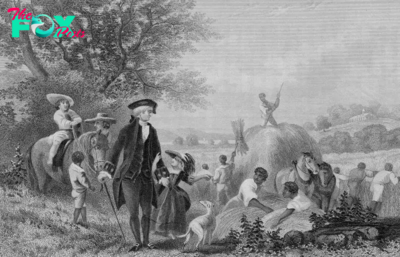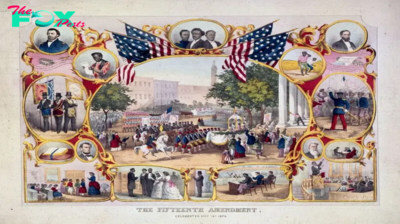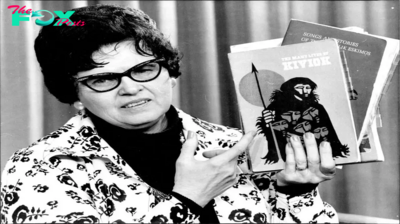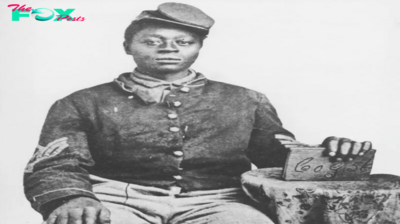History
The Truth About the Past That ‘Tradwives’ Want to Revive
Estee Williams faced her TikTok followers and detractors head-on with full makeup, coiffed blonde waves, and a floral-printed puff sleeve peasant top cinched at the center with a tidy bow. She felt obligated to clarify a few things about what it really meant to be a “tradwife”—a portmanteau denoting “traditional wife”: “So the man goes outside the house, works, provides for the family. The woman stays home, and she’s the homemaker. She takes care of the home and the children if there are any.”
But Williams’ definition moved beyond the idyllic character of June Cleaver or even the Victorian-era presumptions of separate spheres. “Tradwives also believe,” she insisted, “that they should submit to their husbands and serve their husbands and family.” Williams was quick to defend her position against potential critics, noting that she did not believe women were inferior to men, but that they had an equally important but different role.
Tradwives have not escaped the notice of journalists and social commentators who track their popular rise on various social media platforms. Some analyses of the tradwife trend reference the 1950s, while other commentators focus on influencers like Hannah Neeleman of Ballerina Farm fame, who perform the role of 19th-century homesteaders (despite Neeleman’s occlusion of her husband’s inherited wealth). But the ideology behind the fad has much deeper—and more insidious—roots in American history.
Read More: The False Escapism of Soft Girls and Tradwives
Although the use of social media and the power of tradwife “influencers” may be new, the use of media to reinforce conservative social norms is not. Women in 18th-century Anglo-America, for example, were inundated by “conduct literature”: writing in magazines, newspapers, and novels that dictated how they ought to behave, especially in their marriages.
Conduct literature provided women and men with pointed guidance about how to choose a spouse.
Women were ostensibly imbued with a significant choice in this regard, yet this choice was highly circumscribed. Once she wed, she had little choice remaining within this marital union. The “good wife,” for example, was to be “strictly and conscientiously virtuous...chaste, pure and unblemished in every thought, word and deed.” More prescriptions followed: “she is humble and modest from reason and conviction; submissive from choice, and obedient from inclination.” She was the helpmeet of her husband, “always” making it “her business to serve and oblige” him. Her happiness was contingent upon his own.
Social expectations for wives likewise filled the pages of novels like The Coquette (1797) and Pamela (1740) which extolled the virtues of white femininity. These popular books were entertaining for readers, much like contemporary tradwives’ social media posts, but also didactic in their demonstrations of what would become of “fallen” women who had chosen their partners poorly. For instance, Eliza Wharton, The Coquette’s protagonist, died giving birth to a stillborn, illegitimate child after eschewing a pious suitor in favor of an attractive cad.
Eighteenth and early 19th century American women’s submission was not merely suggested in prescriptive literature; it also had the force of law. Married women lived under the legal doctrine of coverture, in which their individual, legal identities were subsumed under those of their husbands. The oft-cited legal commentator, Sir William Blackstone—foreshadowing the refrain of tradwives today—asserted that wives’ submission to their husbands was “for her protection and benefit,” making her “a favourite” under the law.
In reality, coverture erased wives’ independent legal identities under the guise of protection and care from husbands. This legal framework dictated that a married woman owned no property in her own name; any wages she earned belonged to her husband.
Under coverture, wives had no clearly defined parental rights, and their bodies were not their own. Marital rape, for example, was not considered a crime in the 18th century (and did not become a crime in all 50 states until 1993). In certain circumstances, domestic abuse was condoned as a corrective measure to the submissive wife; Blackstone’s Commentaries indicate that “moderate correction” was permissible if it fell within “reasonable bounds.”
Women’s access to divorce in early American history was likewise limited. Some colonies, and later states, permitted divorce under certain circumstances (and the number of states providing for access to marital separation would expand over time), though relatively few women availed themselves of this legal mechanism. Given the other stringencies of coverture, life as a single woman and a single mother likely proved a greater trial for many.
Read More: How 'Women's Empowerment' Lost Its Meaning
Eighteenth- and 19th-century women did not possess rights as full citizens in the United States. Historically, citizenship rights have been linked to gender, wherein the obligations and thus the benefits of citizenship depended on sex. Tradwives who claim that women are “naturally” suited for submission to male authority and thus deserving of “protection” from men are implicitly condoning women’s second-class citizenship.
Coverture thus cast a long shadow over women’s rights in American history. Each generation of American women seemingly needed to be reminded—through the law, economic constraints, and even now in social media—of the “naturalness” of her submissive role. These constant reminders, however, suggest equally constant remonstrations from women, albeit with mixed results.
In the 19th century, for example, women’s organizations sought to change the law at the state level to allow married women to own property in certain circumstances, finding some success. But it was not until the 1970s that married women had the right to obtain credit cards separate from their husbands.
The 19th Amendment’s passage in 1920—nearly a century and a half after this nation’s founding—granted some women suffrage, though it would be decades before all women could vote. Women could not serve on juries until the 1870s, although even the recent History of their inclusion has been mixed. Tradwives often insist, as Williams puts it, that their choices “[don’t] mean that we are trying to take away from what woman [sic] fought for.” In her video, she adds that she and other tradwives do not have an agenda: “It’s not really a movement. Nobody’s pushing it. People are typically just living it and maybe showcasing their Lifestyle like me.”
But their glorification of these views obscures the reality of the consequences of women’s submission and subordination to men, whether it is a “choice” or not.
Some do not want it to be a choice at all. Speaker Mike Johnson called for a return to “18th-century values” more than a decade ago. An Alabama State Supreme Court justice’s recent concurring opinion in the case which ruled that embryos were persons under the law invoked the Seven Mountains Mandate, which seeks to impose Christian nationalism over many realms of American life, including government. There is even a growing movement to outlaw “no fault” divorce in favor of promoting “covenant marriages.”

Tradwives figure importantly in this movement. In many ways, they are exploited as pawns of the right, laundering extremist views and transforming them into ostensibly more palatable packaging. This was perhaps the intent behind Senator Katie Britt’s ill-received response to President Biden’s State of the Union address in early March; Senator Tommy Tuberville indicated as much. Yet her performance of womanhood—her breathy vocalization dubbed “fundie baby voice” by critics—appeared as empty as her kitchen and did nothing to soften the blow of her party’s apocalyptic interpretation of current events.
Yet tradwives also entice their followers with soothing videos of sourdough bread baking and #OOTDs evoking prairie chic or Donna Reed, with dangerous consequences. Their advocacy for the ideology and principles of so-called “traditional” gender roles in marriage ultimately have the effect of promoting a return to the days of coverture and an erasure of the hard-fought (if incomplete) gains of women’s rights activists throughout American history.
Jacqueline Beatty, Ph.D. is Assistant professor of history at York College of Pennsylvania and author of In Dependence: Women, Power, and the Patriarchal State in Revolutionary America.
Made by History takes readers beyond the headlines with articles written and edited by professional historians. Learn more about Made by History at TIME here. Opinions expressed do not necessarily reflect the views of TIME editors.
-

 History1w ago
History1w agoWhy People Should Stop Comparing the U.S. to Weimar Germany
-

 History1w ago
History1w agoFlorida’s History Shows That Crossing Voters on Abortion Has Consequences
-

 History1w ago
History1w agoThe 1994 Campaign that Anticipated Trump’s Immigration Stance
-

 History2w ago
History2w agoThe Kamala Harris ‘Opportunity Agenda for Black Men’ Might Be Good Politics, But History Reveals It Has Flaws
-

 History2w ago
History2w agoLegacies of Slavery Across the Americas Still Shape Our Politics
-

 History2w ago
History2w agoKamala Harris Is Dressing for the Presidency
-

 History2w ago
History2w agoWhat Melania Trump’s Decision to Speak Out on Abortion Says About the GOP
-

 History2w ago
History2w agoThe Long Global History of Ghosts



























